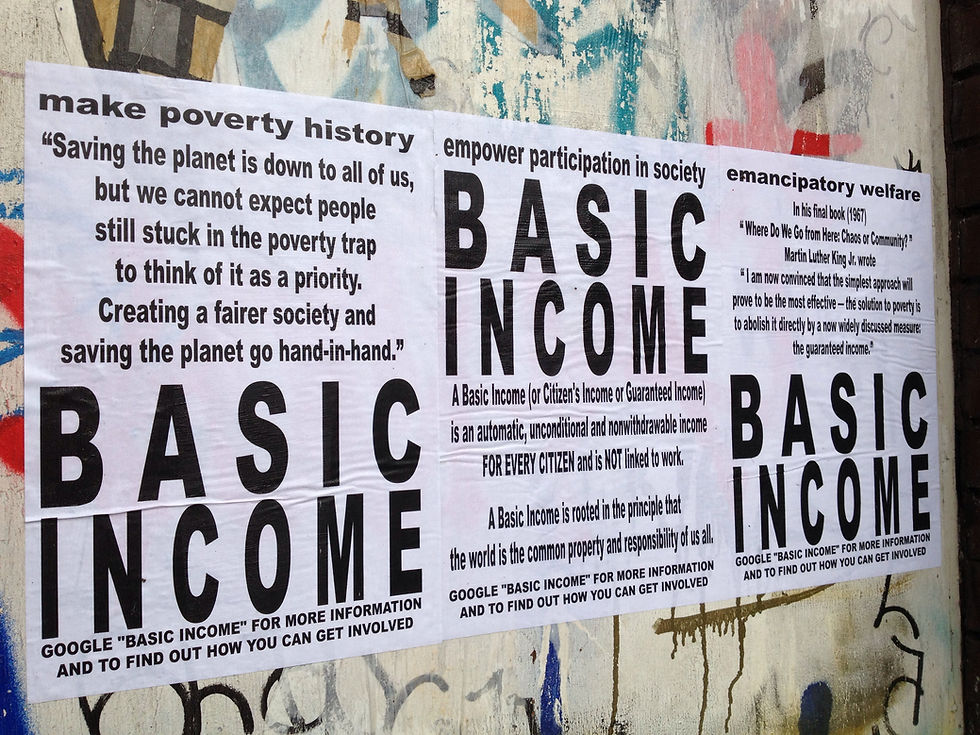Belarus Protests Continue
- Ellie Beaver

- Sep 3, 2020
- 3 min read
Updated: Dec 23, 2024
Ellie Beaver writes about escalating protests following the recent election in Belarus. Demonstrations are now continuing for the fourth week in a row; Alexander Lukashenko has ruled Belarus as an autocratic president since 1994. Currently, new elections are being organized by a council of opposition activists supported by the EU. The country's future is uncertain, but it seems that Lukashenko is lying low until the violence subsides.
Fury is far from dying out, after Belarus' most recent general election. President Lukashenko allegedly received 80.08% of the general election vote, while his opponent Svetlana Tikhanovskaya took only 10.09%. Lukashenko has just assumed his sixth term, despite the crowds at his opponent’s political rallies being “some of the country’s largest crowds since the days of the Soviet Union".
Estimates now put the number of protesters at more than 100,000. This is the third weekend in a row that anti-government demonstrators have continued to demand the resignation of their leader, after claims of fraud and corruption, In the days following the election, Lukashenko faced backlash after mass beatings and the detention of thousands of protesters took place. He is now “avoiding scenes of violent repression that could discredit him further”.

With conflict worsening between soldiers and the protesters, this video shows students being detained and dragged into vans. Many foreign journalists have been deported, had their equipment confiscated, and been forced to delete photos. Other videos have surfaced of “razor wire and camouflage-clad soldiers” dragging more student protesters into unmarked vans. Mr. Lukashenko has dealt further with the protests by detaining, jailing, and expelling citizens “while touting the backing of his most important ally, President Vladimir V. Putin of Russia.” It is unclear whether he is planning to let the protests play out, or bring Russian military police into the country.
The protests have made headway however, with Ursula von der Leyen, the president of the European commission. She is “calling for Belarus to publish accurate results, and condemning the violence against opposition supporters.”
In an interview with Euronews, opposition figure Sviatlana Tikhanovskaya, who is currently in exile in Lithuania, will not be running in any future elections. “Tikhanovskaya said she considered herself the winner”, and described the election as “massively rigged”. Tikhanovskaya also highlighted the dozens of arrested protestors who have vanished and remain unaccounted for. “The EU should not forget them” she declared, although the reason for the disappearances, and many of the protesters’ whereabouts are still unknown.
The protests have also shed a light on police brutality and male dominated politics in the country, and have “brought largely female and middle class led riots.” Thousands of women marched against Lukashenko in Minsk on Saturday, and video footage shows them pushing through a line of government soldiers, who were reluctant to use force against them.
Although President Lukashenko has managed to cling on to power for now, the European Union has condemned the use of police brutality against protesters, and Tikhanovskaya is hoping for another election. She strives for a peaceful transition of power, where she will act as a temporary president.
Tikhanovskaya stated in her interview that “the people of Belarus will not “forgive and forget” all the crimes [the government] have committed, and insisted they are “ready to live without him." She concluded, "We will stand until we win."
“Belarus has woken up. We are not the opposition anymore. We are the majority now. The peaceful revolution is taking place." - Tikhanovskaya
As protests are met with violence, further demonstrations are organised. The question remains: How will it all end? Currently, it is estimated that 7,000 activists are detained, meaning "there are few families in Belarus who will not have been directly affected by the police crackdown."
Another concern is that a large portion of the Belarusian economy is state-owned, which provides Lukashenko with both economic and military ammunition against the protests, and essentially the upper-hand in the struggle.
A Belarusian woman told Euronews: “I hope that the moment will come soon when all our neighbours feel secure and do not feel a threat from the change of power in Belarus but see see that an end to the regime in Minsk is not just good for Belarusians - but for the wider world."

_edited.png)



Comments